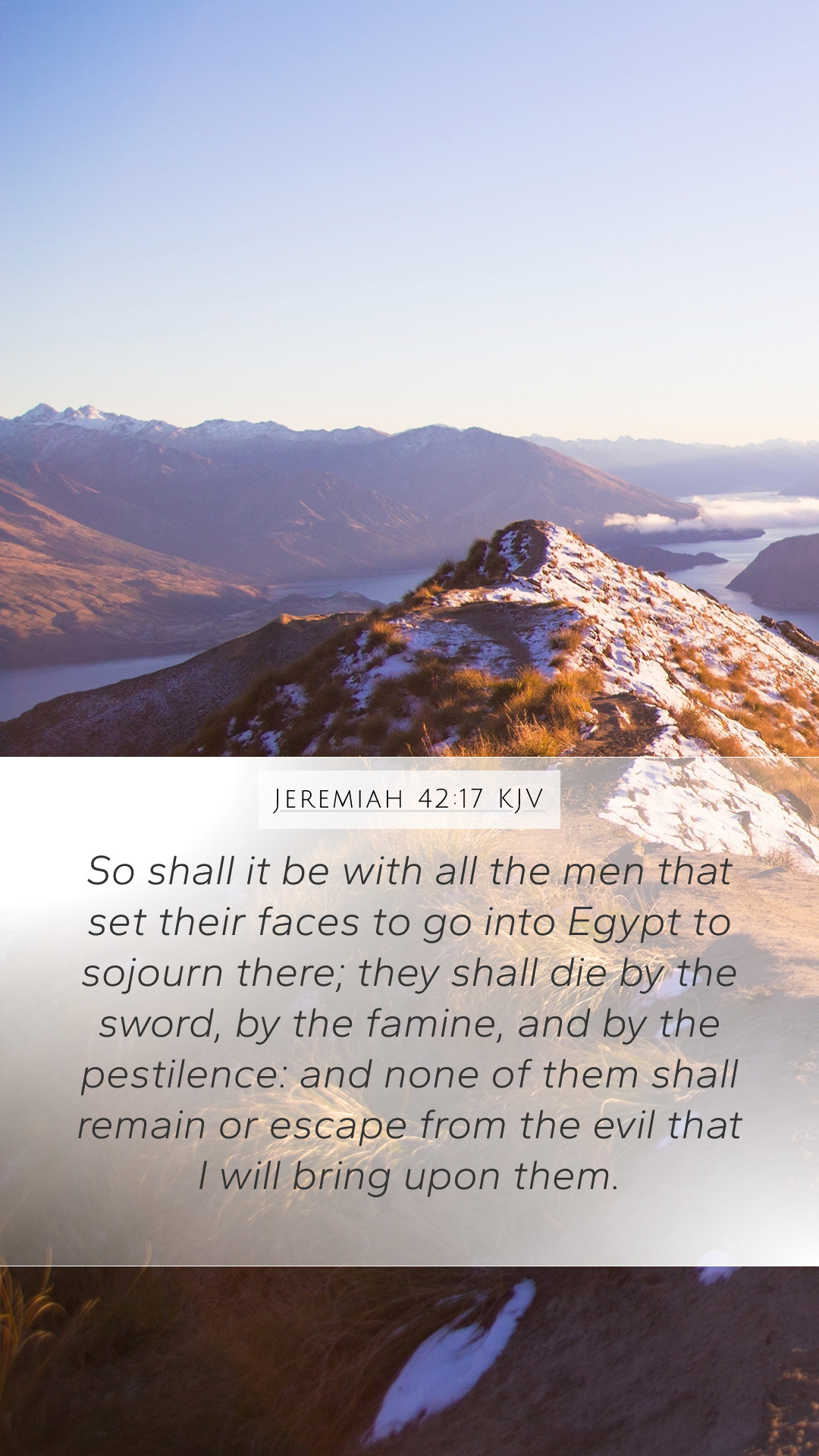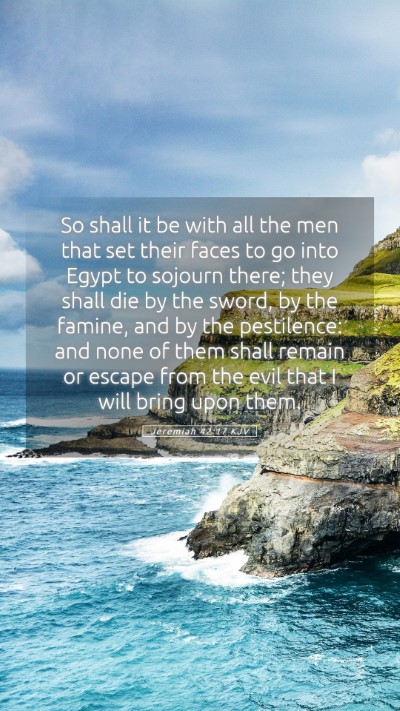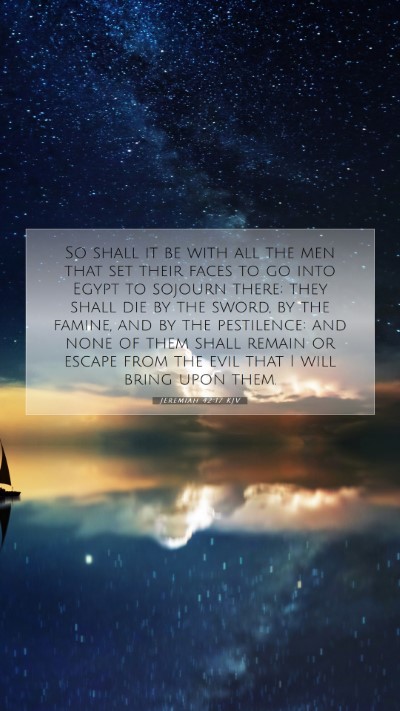Understanding Jeremiah 42:17
Scripture: "But those who seek to go down to Egypt to dwell there shall die by the sword, by famine, and by pestilence. And none of them shall remain or escape from the disaster that I will bring upon them." (Jeremiah 42:17, ESV)
Overview of the Verse
This verse is a warning from God through the prophet Jeremiah to the people of Judah who wished to escape the aftermath of the Babylonian conquest by seeking refuge in Egypt. The Lord emphasized the dire consequences of such a decision—death and disaster—as a prophetic insight into their impending fate should they choose disobedience over faith.
Bible Verse Meanings
- Divine Warning: The assertion that seeking refuge in Egypt would result in death is a form of divine admonition, reflecting God's displeasure with their lack of faith and reliance on human strength.
- Judgment and Destruction: The mention of "the sword," "famine," and "pestilence" indicates total destruction—the comprehensive judgment that God had pronounced upon those who rebel against His plans.
Bible Verse Interpretations
Interpreting this verse requires an understanding of the historical context, wherein the people contemplated returning to Egypt, a place synonymous with their past oppression. It symbolizes a regression into the comforts of worldly safety, while God calls them to trust in His promises despite visible threats.
Bible Study Insights
Studying this scripture reveals profound truths about faith. Just as the Israelites sought safety away from God’s guidance, modern believers might also grapple with similar decisions in times of crisis. This verse serves as a reminder to seek divine counsel above all else.
Biblical Exegesis
Biblical exegesis of this verse involves analyzing the text's original language and historical significance. The Hebrew term for "sword" often denotes judgment, while "famine" and "pestilence" are also common biblical expressions of God’s wrath. Understanding these terms helps to glean deeper meanings from the passage.
Commentary Insights
Matthew Henry: Henry remarks that the people's decision to abandon their promised land in favor of Egypt was rooted in their unwavering distrust in God's protection and provision, highlighting the folly of turning away from God's will.
Albert Barnes: Barnes notes that the prophecy encompassed not just a temporary affliction but rather an irrevocable consequence. Those who fled from God’s judgment were destined for utter destruction, underscoring the seriousness of forsaking divine guidance.
Adam Clarke: Clarke emphasizes the tragic futility of the people's plans, as they sought refuge in a country that had previously enslaved them, reflecting a profound misunderstanding of God’s character and promises.
Applying Bible Verses to Daily Life
This verse speaks to contemporary Christians about the importance of relying on God's plan rather than seeking worldly alternatives for comfort or refuge. It encourages believers to maintain faith during trials instead of resorting to seemingly easier solutions that contradict God’s will.
Cross References
- Isaiah 31:1: "Woe to those who go down to Egypt for help."
- Jeremiah 37:7: "Thus says the Lord, the God of Israel..."
- Exodus 14:13: "Fear not, stand firm, and see the salvation of the Lord."
Conclusion
To fully grasp the richness of Jeremiah 42:17, Christians are encouraged to engage in Bible study tools that facilitate a deeper assessment of scripture. The continuous study of such passages not only fosters a better understanding of individual verses but also illuminates overarching themes within the Bible regarding faith, obedience, and divine judgment.
Further Study Resources
For those interested in exploring this topic further, consider utilizing Bible study guides, engaging in Bible study groups, or employing online Bible study tools aimed at enriching your comprehension of scripture.


